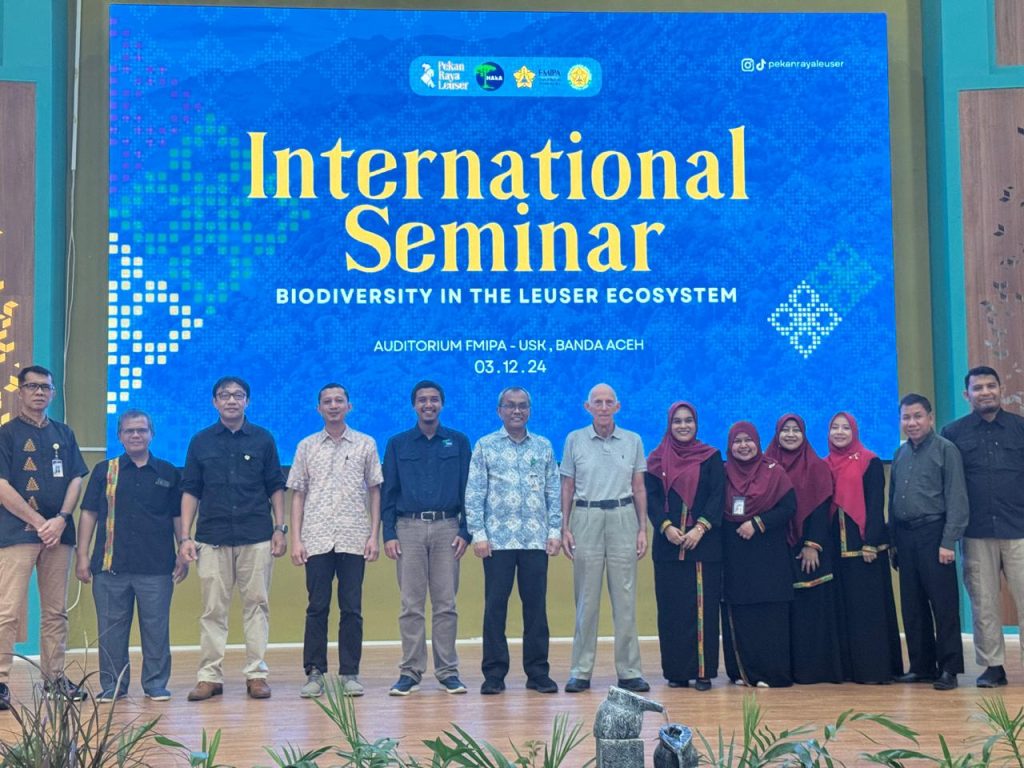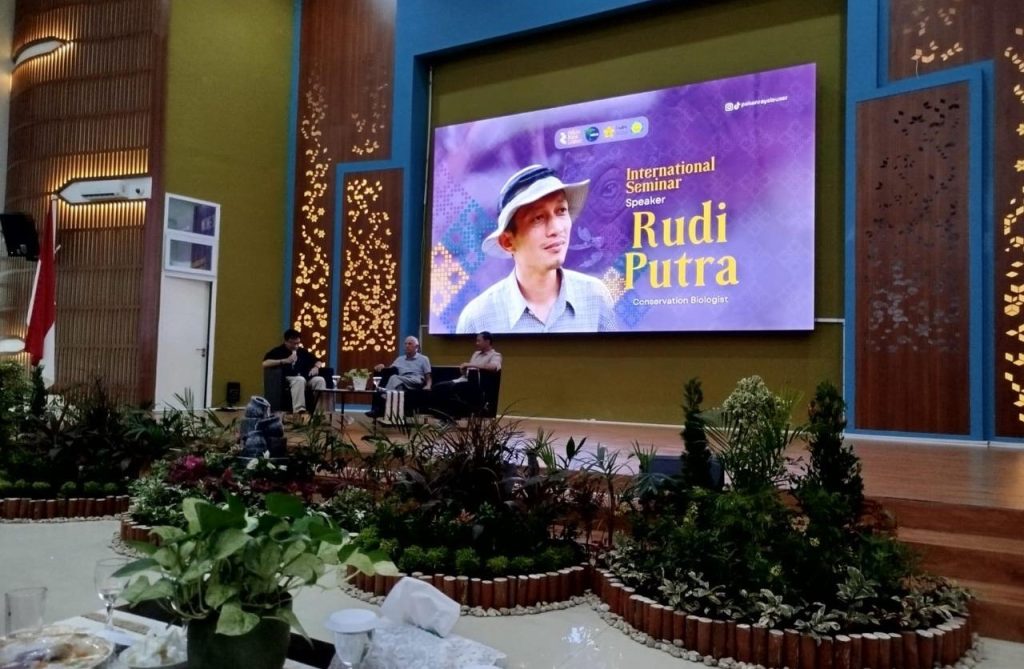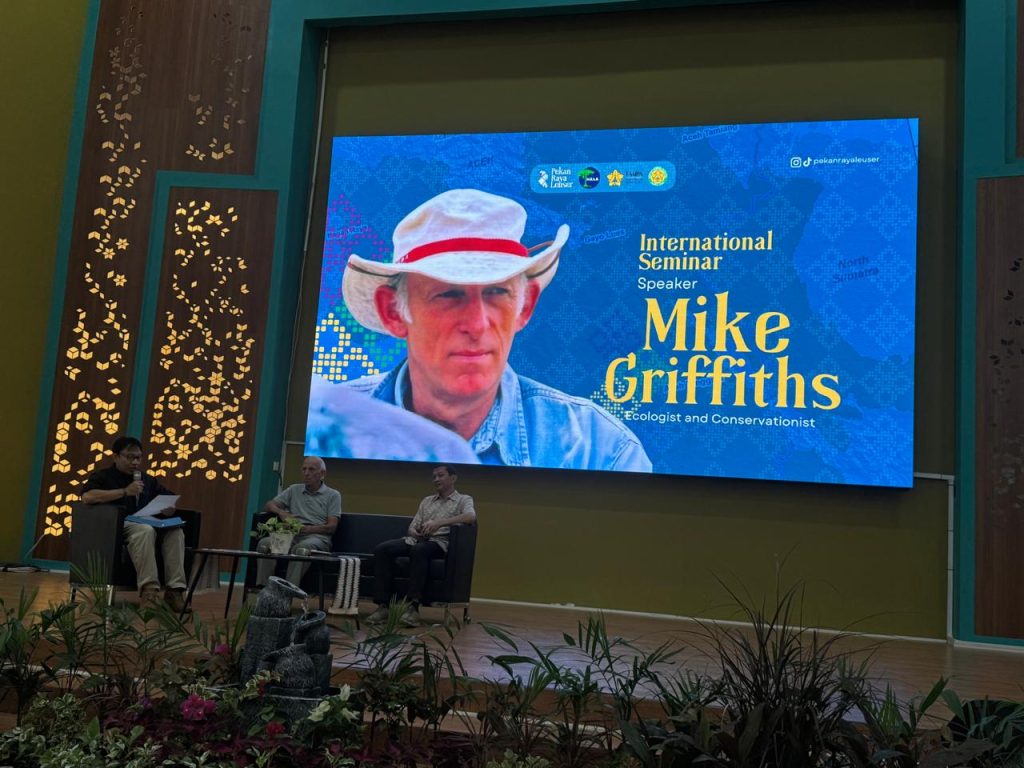
Speech: International Seminar on Biodiversity in the Leuser Ecosystem
Distinguished Guests, Ladies and Gentlemen,
It is a great honor for the Faculty of Mathematics and Natural Sciences (FMIPA) at Universitas Syiah Kuala to host this prestigious International Seminar on Biodiversity in the Leuser Ecosystem. This event, organized by our Department of Biology, represents a significant step forward in our mission to foster global collaboration in biodiversity conservation and research.
At FMIPA, we aim to establish ourselves as a center of excellence in education and research across a diverse range of fields, including Biology, Mathematics, Chemistry, Physics, Computer Science, Statistics, and Pharmacy. Our faculty is committed to producing innovative research and solutions that address critical global issues, with biodiversity conservation and climate change at the forefront of our efforts.
Our reputation as one of the leading faculties at Universitas Syiah Kuala is built on a strong foundation of academic and research excellence. With state-of-the-art facilities and a highly skilled faculty team, we are proud to conduct cutting-edge research that delivers real-world solutions. Through vibrant academic collaborations and partnerships with international institutions, we actively contribute to addressing global challenges, particularly those related to biodiversity and environmental sustainability.

Today’s seminar exemplifies this commitment. It serves as a platform to bring together leading experts, researchers, and practitioners from around the globe to exchange ideas, share insights, and discuss groundbreaking developments in biodiversity conservation.
The Leuser Ecosystem, the focus of this seminar, is one of the most vital natural assets not only for Indonesia but for the world. Spanning 2.6 million hectares across Aceh and North Sumatra, this UNESCO World Heritage site is among the most biodiverse ecosystems on Earth. It is home to critically endangered species such as the Sumatran orangutan, elephant, tiger, and rhinoceros, alongside over 4,500 plant species and 380 bird species.
Beyond its incredible biodiversity, the Leuser Ecosystem provides essential services, including water resources for more than 4 million people and protection against floods and landslides. It also supports economic activities such as agriculture and fisheries, underscoring its significance for both environmental sustainability and human livelihoods.
However, this invaluable ecosystem is under severe threat. Illegal logging, palm oil plantations, and infrastructure development continue to endanger its existence. These challenges demand urgent action. Conservation efforts, including reforestation, wildlife protection, and sustainable livelihood programs led by NGOs, academic communities, and government bodies, are crucial. Yet, lasting solutions require collaboration among all stakeholders, including scientists, policymakers, and local communities.
I would like to express my deepest gratitude to everyone involved in making this seminar a reality. Special thanks go to our colleagues in the Department of Biology for their dedication and hard work, particularly to Prof. Lenny, the Head of the Department, whose leadership has been instrumental.

This seminar is not just an academic gathering; it is a call to action. It is an opportunity to build stronger networks, foster meaningful collaborations, and generate innovative solutions for conserving the biodiversity of the Leuser Ecosystem. Together, we can create actionable recommendations that not only safeguard this precious ecosystem but also set a global example for biodiversity conservation.
Ladies and gentlemen, let us use this seminar to inspire new ideas, strengthen our scientific communities, and reaffirm our collective commitment to protecting the natural world for future generations.
Thank you for your dedication and active participation. I wish you a productive, insightful, and impactful seminar.
Thank you.

